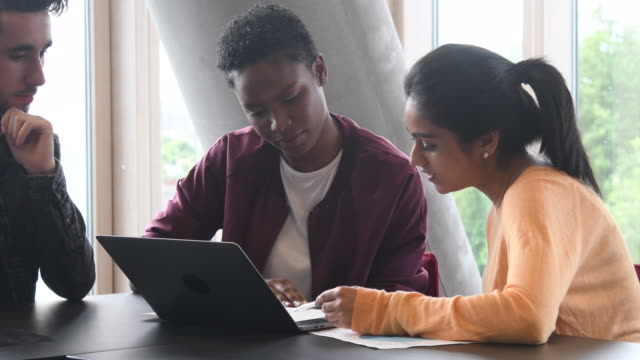The past couple of years have witnessed major upheavals all over the globe. The pandemic has not only spurred innovations in science and technology; it has also taught us the importance of humanity.
Organizations have been called to prioritize diversity, equity, and inclusion. However, during these difficult times, little attention has been given to international students in the US, especially those in graduate school.
When I first came to the US from Nigeria in 2018 to study chemistry at the University of South Carolina, I was immediately faced with new challenges. I experienced culture shock and had to adapt to new ways of living in another country—learning a new language, adjusting to the taste of new food, trying to make new friends, and coping with the difficulties of getting around in a new country.
I was dependent on friends and acquaintances for transportation. I was thousands of miles away from my family and the ones I love. While most people spend holidays with their families and friends, my holidays were a lonely and boring experience with nowhere to go. I was left to either work extra hours in the lab or spend holidays alone in my room.
During the pandemic, the situation for international students has become even more difficult. Our struggles have doubled, our anxiety around keeping up with our families has increased, and the effects of the pandemic on our mental health have gradually intensified. Yet many of us have no one to turn to.
In my own life, two international student colleagues lost their parents to Covid-19, but neither was able to travel to see them before they were buried. This has been a common experience; many international students I know have been unable to pay last respects to their loved ones because of travel restrictions, financial limitations, or the intense workload of graduate school.
A close friend contracted Covid-19 during the summer of 2021, and at that time I realized that neither of us has family in the US to help us. We are in the States by ourselves, and I had to care for him while he was in quarantine. It was my first time taking care of a sick friend alone, and I was sad and overwhelmed.
Over the years, international students have learned to suffer in silence while staying competitive. Despite all these hardships, we still strive to get good grades, conduct innovative research, and write high-quality papers for publication, which have a big impact on the research community and society at large.
According to the Institute of International Education’s 2019 Open Doors Report, international students contributed $45 billion to the US economy in 2018. Even amid immigration restrictions and the pandemic, international students contributed more than $28 billion to the US economy and supported the addition of more than 300,000 jobs during the 2020–21 academic year, according to a recent report from NAFSA: Association of International Educators.
Universities are bringing in students from abroad that they are supposed to nurture. So why haven’t international students been given more support during the pandemic?
Most students understand that studying abroad will be a challenge. Notwithstanding, we deserve some recognition for surviving these hard times. To better support international students moving forward, supervisors and professors should pay close attention to their international students, especially if they are falling behind in their coursework, and refer them to a counsellor or student services if needed.
Institutions should encourage peer mentoring among international students; in my experience, students feel more comfortable discussing their challenges with individuals of a similar cultural background who can easily relate to their challenges. International student offices at universities should expand their mental health services.
And they should also provide more practical support, whether it be transportation to the grocery store or a trip to a historical monument to learn about a host country. Programs that allow international students to showcase their cultures and meet fellow students would promote diversity on campus and help make students feel welcome in the new communities.
Finally, to all international students: You are not alone in these struggles. Be strong, and keep pushing, even when it feels that no one understands what you are going through. Rest assured that your fellow international students appreciate your efforts.
Sakiru Abiodun is an international student from Nigeria. He is working toward his PhD in chemistry at the University of South Carolina.
Read all the Latest News here. Follow us on Facebook, Twitter, Instagram, and LinkedIn.


















Add comment